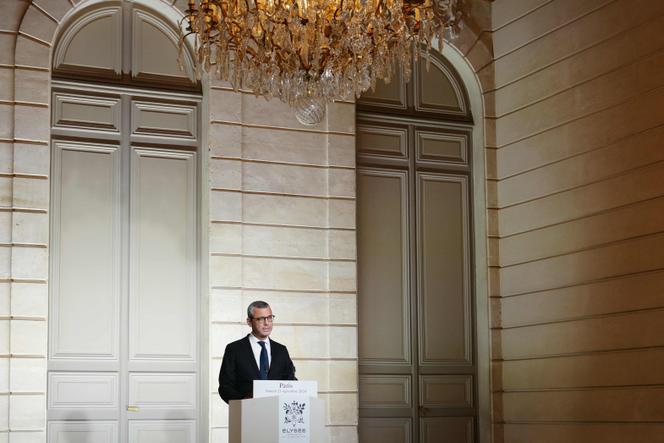


On Saturday evening after 8 pm, newly appointed French ministers took to social media to express their gratitude in two different ways: Some thanked both the president and prime minister for their appointments, while others thanked the prime minister only. The 45th government of the Fifth Republic is already divided between Emmanuel Macron loyalists and Michel Barnier allies.
Announced by the president's chief of staff, Alexis Kohler, from the winter garden of the Elysée, this new government feels like a team of relatively unknown figures, with veteran right-wing politician Rachida Dati as its most prominent figure. It's "a Barnier government," said a source at the Elysée, taking their distance from the lackluster team.
A significant number of new faces were brought in to create the illusion of change, even though seven ministers from former prime minister Gabriel Attal's government were reappointed despite the presidential camp's defeat in the July snap elections. Additionally, key political figures who might be contenders in the next presidential race were deliberately excluded to shield this fragile team from the upcoming campaign pressures – the next presidential election is scheduled for 2027. Finally, several key figures declined to join this crisis government, whose future remains uncertain.
This team was painstakingly put together after two weeks of intense negotiations but is also very imbalanced. Macron had set an unrealistic goal for his prime minister: "To get as close as possible to national unity." In the end, only former Socialist MP Didier Migaud, president of the French High Authority for Transparency in Public Life (HATVP), responded to the government's call, earning him the second-highest position in the new administration.
Migaud, who had left politics in 2010, has now, at age 72, succeeded Eric Dupond-Moretti as Minister of Justice. In this role, he will need to navigate working with new Interior Minister Bruno Retailleau. Retailleau, the embodiment of the conservative Catholic right, whose announced appointment has sparked outrage among Macron's supporters and their allies of the centrist MoDem party, particularly on immigration and security issues. He has repeatedly said was too soft on these matters. "The French expect only one thing from public officials: results. So I'm here to act, with a single watchword: Restore order to ensure harmony," wrote Retailleau on X, following his appointment.
Retailleau has appointed Nicolas Daragon, the conservative Les Républicains (LR) mayor of Valence (south), as junior minister in charge of everyday security. He also appointed Othman Nasrou, Franco-Moroccan and vice president of the Ile-de-France regional council, as junior minister for citizenship and anti-discrimination. On the other hand, the idea of a fully-fledged immigration ministry, tested for a time by Barnier, was not retained, in the face of outcry from the left.
You have 59.84% of this article left to read. The rest is for subscribers only.
